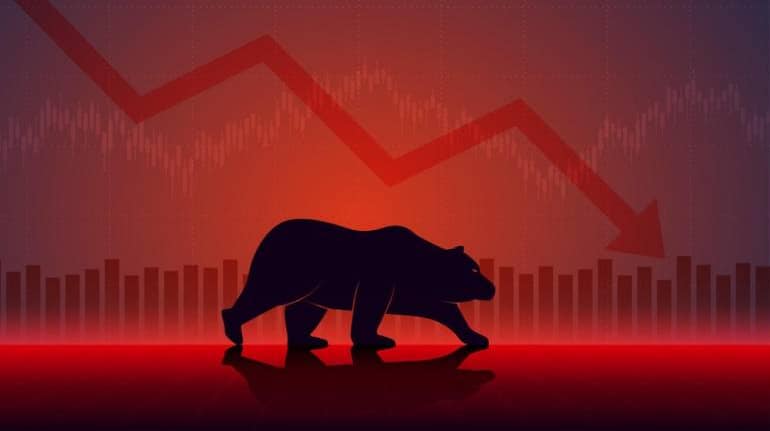



Indian stocks dropped 11 percent during the January-March quarter till date, most among the world's top 10 markets by value amid continued selling by foreign investors.
The drop in the aggregate Indian market capitalisation is the biggest since the March 2020 quarter when Covid worries first surfaced. On the other hand, global peers are in the green despite selling pressure due to expectations of rate hikes by central banks to tackle inflation.
Over the past week, both Sensex and Nifty recorded a decline of 3.8 percent. In the last month, they each suffered a drop of over 6 percent. Year-to-date, the losses for the indices mounted to 5.4 percent and 6.3 percent, respectively.
The sales by foreign investors this year have amounted to nearly $2.69 billion, on top of over $17.21 billion in sales by them in the past year.
Global peers in green
In comparison, the US, the world's most valuable stock market with a capitalisation of $41.90 trillion, gained 2.05 percent in the March quarter, while China ($10.74 trillion), the world’s second-biggest, was up 5.9 percent, Japan ($5.53 trillion) gained 1.3 percent, Hong Kong ($5.31 trillion) rose 1.6 percent and France ($3.1 trillion) climbed 8 percent.
The United Kingdom ($2.93 trillion) was marginally up 0.77 percent, Canada ($2.68 trillion) lost 1 percent, Saudi Arabia ($2.63 trillion) was up 0.13 percent and Germany jumped 8.64 percent ($2.31 trillion).

Selling pressure
Indian markets are likely to see further selling pressure amid falling global markets after the recent failure of two US-based banks. Switzerland's second-biggest bank Credit Suisse hit historic lows on March 15 after its main shareholder said it would not invest any more money also dampened sentiments among investors.
Analysts said overall fragile sentiments have kept the markets on edge, and aggravating risk-off sentiment due to fear of more defaults can lead to more selling pressure.
"Globally, the crisis in the US banking system has roiled markets with the banking sector coming under pressure across markets on fears of contagion. Markets are concerned over the health of the financial system reiterated by rating agency Moody’s cut in its outlook on the US banking system from stable to negative. The collapse of Silicon Valley Bank following losses in its bond portfolio and Signature Bank are the biggest bank failures since the global financial crisis and have sent shockwaves through the banking sector," said Mitul Shah, Head of Research at Reliance Securities.
The selling pressure will also persist amid expensive valuations and fears of a potential cut in earnings in the upcoming March quarter. Concerns over below-normal monsoon rainfall amid possible El Nino conditions are also increasing worries about rising food inflation.
"We expect net profits of the Nifty-50 Index to grow 10.5 percent in FY23, 14.7 percent in FY24 and 15.9 percent in FY25. (EPS of 806 in FY23, 923 in FY24 and 1075 in FY25). Even post-correction, Indian equity markets appear expensive on an absolute basis as well as relative to history and bond yields currently. Banks and financials are the only exceptions as they trade at reasonable levels, below their pre-Covid levels," said Shrikant Chouhan, Head of Equity Research (Retail), Kotak Securities Ltd.
Several analysts are optimistic that the central banks, treasuries and Deposit Insurance Corporations are taking swift action to mitigate the issue and expect it to be resolved soon. Unlike the 2008 financial meltdown, there are no significant underlying problems to cause concern, analysts said.
Discover the latest Business News, Sensex, and Nifty updates. Obtain Personal Finance insights, tax queries, and expert opinions on Moneycontrol or download the Moneycontrol App to stay updated!
Find the best of Al News in one place, specially curated for you every weekend.
Stay on top of the latest tech trends and biggest startup news.